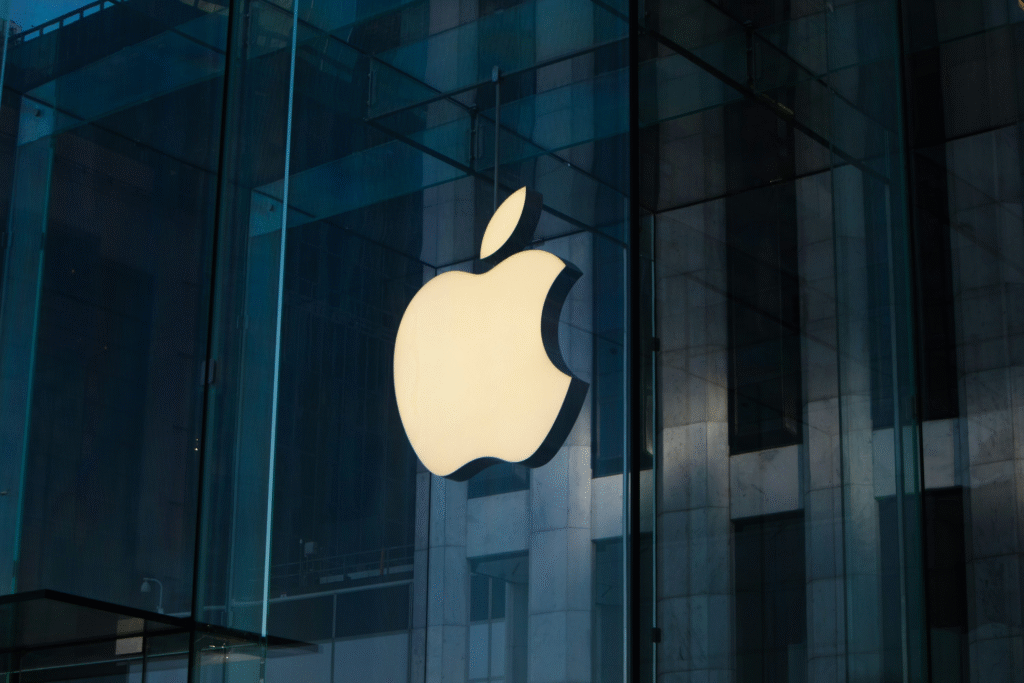Apple, one of the biggest technology companies in the world, has recently faced a huge legal defeat. A tribunal ruled that Apple misused its powerful position in the app market by charging app developers unfairly high commissions. This decision has become a serious setback for the American company, as it may now have to pay hundreds of millions of pounds in compensation.
The case was filed on behalf of millions of iPhone and iPad users, who claimed that Apple’s high app store fees made them pay more for apps and in-app purchases. After a long trial, the tribunal agreed that Apple had indeed abused its dominant power between October 2015 and the end of 2020. The judges said that Apple unfairly controlled how apps were distributed and charged developers excessive and unreasonable commission fees.
This decision is being called a landmark ruling because it could open the door for other similar lawsuits, not only against Apple but also against other major tech companies such as Google. The ruling gives regular consumers a stronger voice when dealing with global tech giants and could inspire more people to take action if they believe a big company has treated them unfairly.
Apple has strongly disagreed with the ruling. The company said it plans to appeal the tribunal’s decision because it believes the judgment is incorrect. In its official statement, Apple said the ruling “takes a flawed view of the thriving and competitive app economy.” The company argues that its App Store has actually helped developers grow their businesses by providing them with a safe and trusted platform to sell apps worldwide. Apple says it has always been fair to developers and users and that the App Store’s success is proof that it supports healthy competition.

However, the tribunal did not see things that way. According to the ruling, Apple used its dominant market position to stop competitors from entering the app distribution market. The tribunal stated that Apple’s control over app downloads on iPhones and iPads forced developers to follow its strict rules and pay high commissions, often around 30% of their app earnings. These costs, the tribunal said, were eventually passed on to customers, who ended up paying more for apps and in-app purchases than they should have.
The lawsuit was first filed several years ago and has since been closely watched by regulators, lawyers, and other tech companies. Those who brought the case estimated that it could be worth as much as 1.5 billion pounds (about $2 billion). This amount represents the total damages that could be owed to millions of users if Apple is found responsible for overcharging them. A hearing next month will decide exactly how the damages should be calculated and whether Apple will be granted permission to appeal the decision.
This is not the first time Apple has faced criticism for the way it runs its App Store. Regulators in several countries have repeatedly raised concerns about the fees that Apple charges developers. Many developers have complained that Apple’s policies make it difficult for them to earn fair profits from their apps. Some say that Apple’s commission fees are so high that small developers can barely survive. Others argue that users have no choice but to go through Apple’s App Store, which gives the company too much control over prices and products.
In recent years, governments and regulators around the world have started paying closer attention to how big technology companies like Apple, Google, and Amazon operate. They worry that these companies have too much power and influence over markets, users, and even small businesses. This ruling adds to the growing list of legal challenges Apple is facing. In the European Union, Apple has already been fined and investigated over similar issues, including its rules for app payments and its restrictions on third-party app stores.
For Apple, this case is about more than just money—it’s about reputation and control. The company has always defended its App Store policies by saying that they protect users’ privacy and security. Apple says that by carefully reviewing every app before it appears on the App Store, it keeps users safe from harmful or fraudulent apps. But critics argue that Apple uses this reasoning as an excuse to block competition and collect high fees.
Many people in the tech industry are watching how Apple handles this case because the outcome could affect the future of app stores everywhere. If Apple loses its appeal, it may have to change the way it operates its App Store in other countries too. This could include lowering its commission rates or allowing developers to use alternative payment methods instead of going through Apple’s system.
This case is also a big step forward for consumers and developers who feel that large tech companies have been taking advantage of their power. It shows that even the biggest companies can be held accountable if they are found to be acting unfairly. As more people and organizations become aware of how digital markets work, there may be even more challenges to the way tech giants do business.
Still, Apple’s influence in the global tech world remains strong. Millions of users continue to buy iPhones, iPads, and other Apple products every year. The company’s brand loyalty is incredibly high, and its ecosystem of apps and services keeps users deeply connected to the Apple experience. Even as Apple faces more legal pressure, its products remain some of the most popular and trusted around the world.
This lawsuit, however, serves as a strong reminder that even the most successful companies must follow fair rules. No matter how powerful or respected a brand may be, it cannot ignore the importance of treating developers and consumers equally. As the next hearing approaches, many are waiting to see how Apple will respond—will it make changes to its App Store, or will it continue to fight to protect its current system?
One thing is certain: this case will be remembered as a turning point for the app industry. It has sparked a larger conversation about fairness, competition, and control in the digital world. For now, Apple’s future in the app store business may depend on how it handles the outcome of this ruling—and the steps it takes next.








